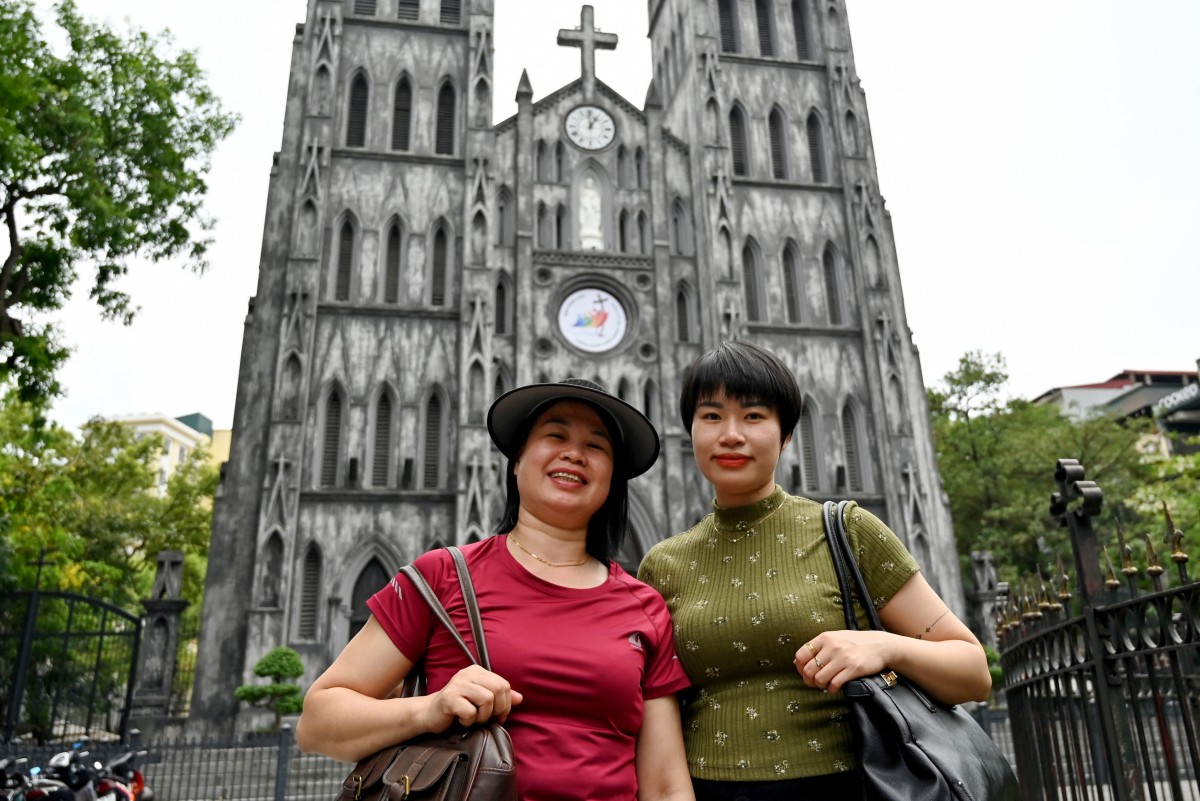
By Agence France-Presse
After Vietnam removed its two-child limit, pharmacy worker Nguyen Thi Nguyet Nga says she still has no plans to have more kids, since she barely has time to see her daughters or the money to provide them a good life.
On June 4, the country’s communist government lifted a long-standing ban on families having more than two children, as it battles to reverse a declining birth rate and ease the burden of an aging population.
But rising living costs and changing societal values mean the adjusted law may not bring the baby boom the government hopes for.
First introduced in 1988, the law has been loosely enforced in recent years, and despite its abolishment, 31-year-old Nga said she worries about the costs of having a third child.
“It would mean seeing her two girls—aged seven and 12—even less than she does or skimping on their education. My parents-in-law really want us to have a boy… however, I will definitely not have more kids,” she said.
She earns around $300 a month working in a pharmacy in the main town of northern Tuyen, Quang province, while her children live with their grandparents 40 kilometers (25 miles) away.
“I don’t earn enough for the two girls to have a good life. I don’t have a chance to live with them everyday. Mostly, we talk on video chat and only see them once or twice a month, so why would I have another child?” Nga explained.
Vietnam has experienced historically low birth rates in the last three years, with the total fertility rate dropping to 1.91 children per woman in 2024, below replacement level.
Although the trend is most pronounced in major cities, such as the capital Hanoi and Ho Chi Minh City, Nga says she and her friends in the countryside feel no more inclined to have larger families.
“It’s better to have two [children] grow up well than having three or four kids who don’t have a good education or good life,” she said.

‘Time for myself’
University student Nguyen Thi Kim Chi, 18, shared Nga’s skepticism about having a big family, explaining that in an increasingly developed Vietnam, young people believed there were more options than devoting themselves entirely to raising children.
“My plan is to get married and have children once I have a stable career and financial security,” said Chi, who studies dance performance in Hanoi.
“I intend to have one or two kids because I want to balance work, childcare, and also have time to take care of myself,” she added.
As in many countries, the soaring cost of living has acted as a drag on birth rates in Vietnam. Housing, utilities, healthcare, and education costs are rising across the country, and those living in cities in particular say salaries no longer meet their needs.
The United Nations Population Fund said it welcomed the country’s policy shift but warned that it needed to invest in policies that help people balance family and professional life, including expanding access to quality childcare, and promoting gender equality in the workplace.
Tran Thi Thu Trang, who had a third child unexpectedly and now has two boys and a girl under seven, admitted life got much more difficult after the birth of her youngest.
As an office worker in the port city of Haiphong, the 30-year-old is lucky to be able to afford a nanny.
“But salaries need to rise, we need help with kids’ tuition fees and more support on health care”, she told AFP.
“Following the removal of the two-child limit, “I think it will take 5-10 years (for people to change their views); but only if the government makes this a priority,” she concluded.
